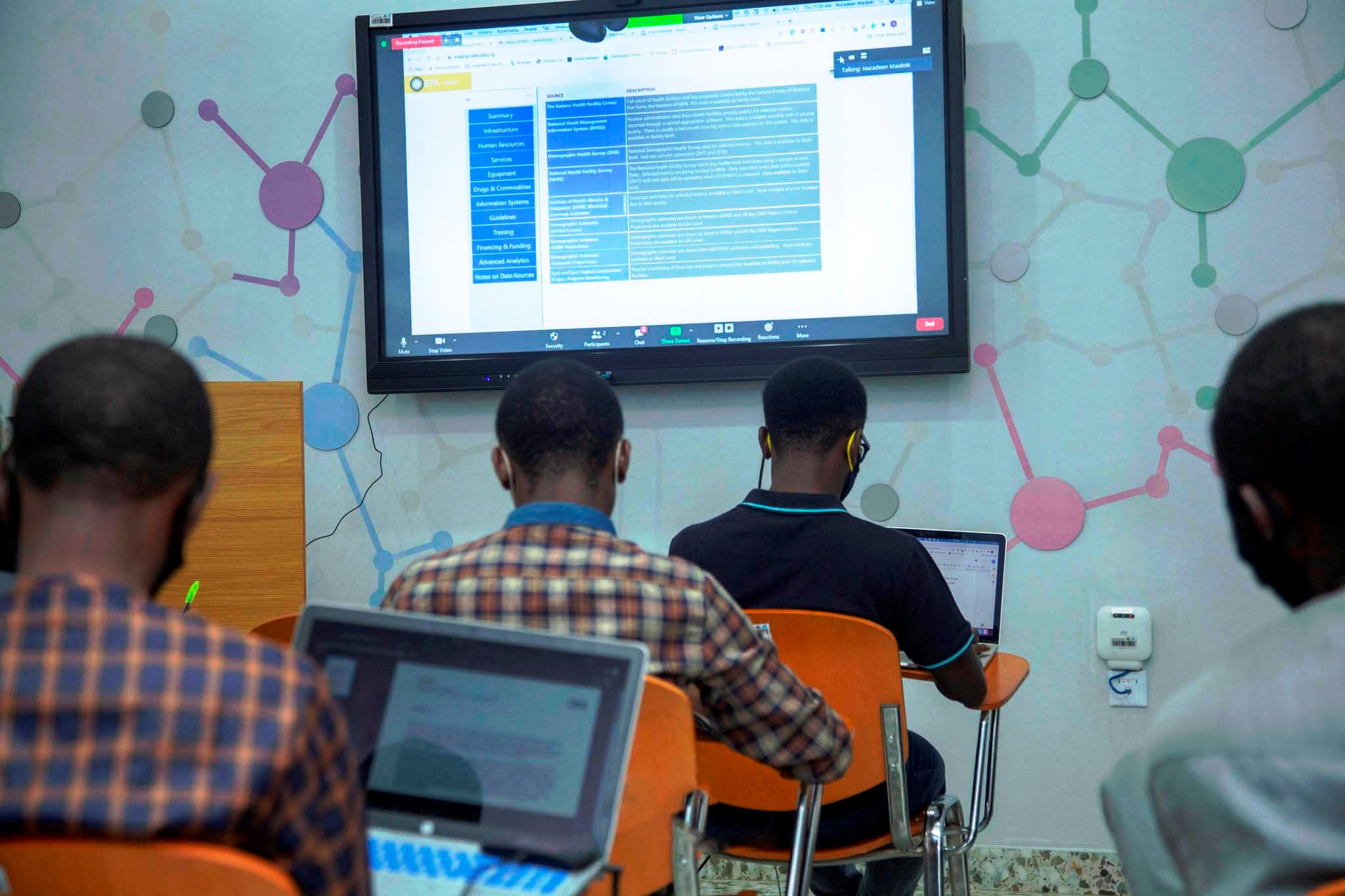The arrival of the fourth industrial revolution has ushered in a new era of globalisation with significant changes and disruptions across various industries, necessitating the prioritisation of digital skills.
Information and Technology experts say digital skills are required more than ever before to stay relevant and competitive in the global economy, which is now driven by technology. Unfortunately, these skills appear to be in short supply as statistics show a huge gap of digital skills across the globe with Africa topping the chart.
A study by the International Finance Corporation (IFC) and the World Bank through the Digital Development Program Trust Fund on 5 African countries’ markets – Cote d’Ivoire, Kenya, Mozambique, Nigeria, and Rwanda – reveals that by 2030 some level of digital skills will be required for 50-55% of jobs in Kenya, 35-45% of jobs in Cote d’Ivoire, Nigeria, and Rwanda, and 20-25% of jobs in Mozambique.
According to their findings, much of the demand for digital skills will emanate from generic occupations that are not from narrowly defined ICT professions, as more enterprises adopt digital technologies in a broad range of sectors. About 70% of the demand will be for foundational digital skills and another 23% will be for non-ICT intermediate level digital skills.
Sadly, these jobs may end up unfilled as access to digital knowledge and soft skills remain a big challenge for Africa, with more than 80% of children in the continent leaving school without basic digital skills knowledge, while 70% of the continent’s mobile phone users lack access to the internet.
With the largest population of youths in the world, this is a huge challenge for the continent if not quickly addressed. By 2050, it is projected that Africa’s youth will make up one third of the global workforce. But with a shortage in digital skills, a huge number of these youths are likely to go unemployed, thereby predisposing them to destructive tendencies.
Already, the evidence of the inadequacy of digital skills is noticeable in the workspace today with many companies facing the challenge of having to fill vacant job positions as there are not enough people with the right digital skills to power their companies’ transformation now and in the future.
To this end, it has become imperative for a sustained investment in digital skills to support the shift in career opportunities driven by digitalization for long-term economic growth.
One of these initiatives is the Digital Skills Entrepreneurship programme for youths in the Bichi Emirate in Kano state. Designed to train at least 1000 youths from and within the Bichi emirate, 9mobile through the programme is helping to equip and empower these youths with the requisite digital skills needed to kick start their journey in the global space as either employees or employers of labor.
Speaking at the graduation of the first set of graduates of the initiative in Bichi which was also part of activities to mark the coronation of the Chairman of Board of 9mobile, Alhaji Nasir Ado Bayero as the second Emir of Bichi, the acting Chief Executive Officer of 9mobile, Mr. Juergen Peschel, stated that the programme is one of the company’s strategic efforts to provide digital skill acquisition opportunities for youths in line with the federal government’s agenda on digital transformation.
He said, “With the ongoing digital transformation drive of the federal government of Nigeria, it has become important to prepare youths who form a greater part of the workforce to tap into the opportunities in the digital space.”
He noted that in a country endowed like Nigeria with two-thirds of its population within the youth bracket, the question has always been about how to empower young people with relevant and sustainable skills and create the enabling environment for them to channel their energies and innovation into productive enterprises that can be harnessed for national development.
The telco chief reiterated 9mobile’s commitment to empowering the youths, stating “We are constantly in tune with the dreams and aspiration of the Nigerian youths. This is what informs all our ground-breaking youth-centered initiatives.”
Commending 9mobile for sponsoring the initiative, Executive Vice Chairman, Nigerian Communications Commission (NCC), Prof. Umar Danbatta while delivering the lecture for the event, noted that the programme is in line with key policy documents developed by the Federal Ministry of Communications and Digital Economy, including the Nigeria National Broadband Plan 2020-2025, the National Digital Economy Policy and Strategy 2010-2030, and the National Policy on Promotion of Indigenous Content in the Nigerian telecommunications sector (NPPIC), to promote a digital economy.
A beneficiary of the program, 22-year-old, Usman Aliyu who has never operated a computer before the programme, remarked that the experience has changed his life completely and that he is ready to compete in the modern workspace. “I never imagined in my lifetime that I will ever operate a computer system but here I am today, fully equipped to explore the digital space with the skills acquired during the training. I hope to use the skill to help my community by creating jobs for my fellow youths thereby reducing the rate of unemployment in our society. This is the first of its kind in Bichi and I am proud to be a part of the first set of beneficiaries, I can’t thank 9mobile enough for this opportunity,” he said.

 Join Daily Trust WhatsApp Community For Quick Access To News and Happenings Around You.
Join Daily Trust WhatsApp Community For Quick Access To News and Happenings Around You.


